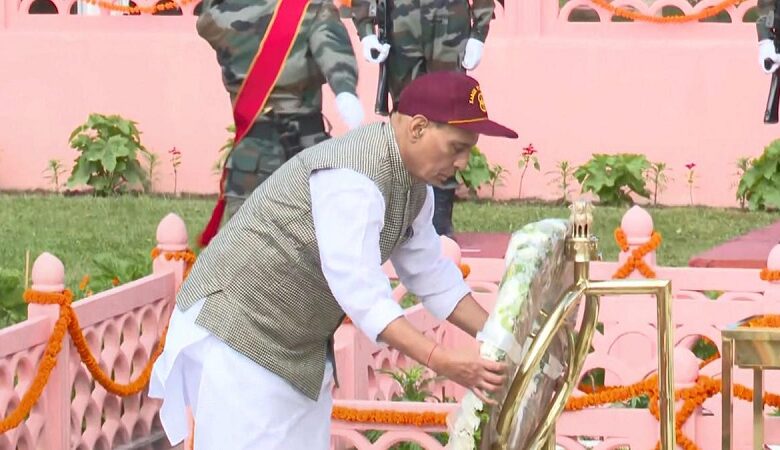
Tensions between India and Pakistan have been reignited following remarks made by Indian Defence Minister Rajnath Singh during the 24th Kargil Vijay Diwas commemoration at the Kargil War Memorial in Ladakh’s Drass town. Pakistan has criticised Singh’s “belligerent rhetoric,” viewing it as a threat to regional peace and stability.
In his speech, Singh reaffirmed India’s commitment to protect its sovereignty, unity, and integrity without compromise. He asserted that the country is prepared to take any necessary actions to uphold its honour and dignity, even if it means crossing the Line of Control (LoC).
The LoC is the de facto border that divides the disputed region of Kashmir between India and Pakistan. Both countries have claimed the territory in its entirety, leading to decades of tension and armed conflicts, including the Kargil War in 1999.
The Kargil Vijay Diwas is observed annually to commemorate India’s victory in the Kargil War, during which Pakistani forces were pushed back across the LoC. The event holds significant emotional and strategic importance for both nations.
However, Singh’s statement about the possibility of crossing the LoC has escalated tensions between India and Pakistan. In response, Pakistan’s government has condemned the remarks, viewing them as a provocative and aggressive stance that poses a risk to regional stability.Pakistan’s Ministry of Foreign Affairs issued a statement expressing concern over Singh’s “jingoistic” rhetoric and called for restraint and responsible dialogue to prevent any escalation of hostilities between the two nuclear-armed nations.
The recent exchange of belligerent statements between the two countries underscores the fragile nature of their relations and the potential for further escalation in the region. Both India and Pakistan must exercise caution and refrain from engaging in inflammatory rhetoric that can fuel hostilities and endanger peace.
The international community has also been closely monitoring the situation, urging both countries to engage in dialogue and find peaceful solutions to their long-standing disputes, including the Kashmir issue.The ongoing tensions between India and Pakistan have significant implications for regional security and stability. Any escalation of hostilities could have severe humanitarian consequences and disrupt the lives of millions of people living in the affected areas.
As neighbours with a history of conflict, India and Pakistan must prioritize diplomatic efforts to address their differences and promote lasting peace. The Kargil Vijay Diwas should serve as a reminder of the costs of war and the importance of finding peaceful resolutions to territorial disputes.
The international community, including major powers and regional organizations, has a role to play in encouraging dialogue and facilitating peaceful resolutions between India and Pakistan. These efforts should focus on promoting stability and security in the region, while respecting the aspirations and rights of the people living in the disputed territories.
On the 24th Kargil Vijay Diwas, it is crucial for both nations to reflect on the lessons of history and commit to a future of dialogue, cooperation, and peaceful resolutions. The path to peace may be arduous, but it is one that offers hope and prosperity for the people of the region. By working together and engaging in meaningful dialogue, India and Pakistan can pave the way for a brighter and more peaceful future.






